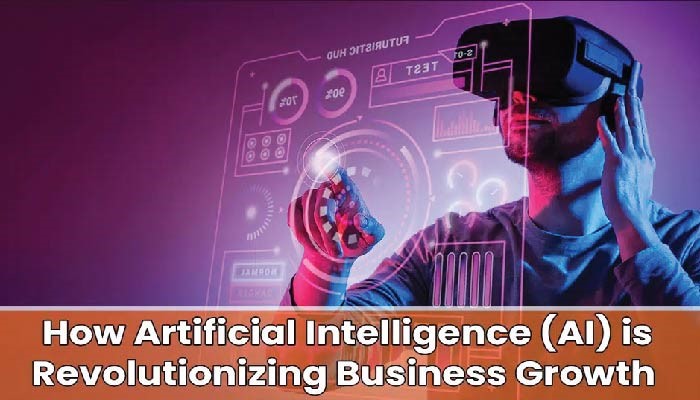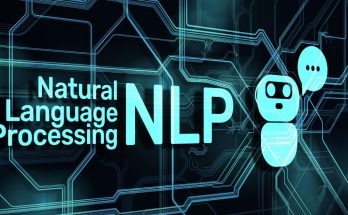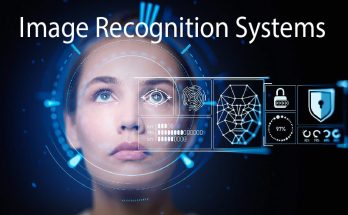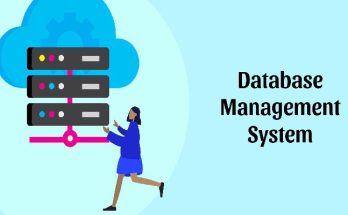How AI is Revolutionizing Business Practices: A Comprehensive Analysis
There are some Practices how AI is Revolutionizing Business. Artificial Intelligence (AI) has emerged as a transformative force reshaping traditional business practices across industries. From enhancing customer experiences to optimizing operational efficiencies, AI technologies are revolutionizing how businesses operate and compete in the digital age. This article delves into the various ways AI is driving innovation and redefining business practices, exploring its impact on strategy, operations, and decision-making.
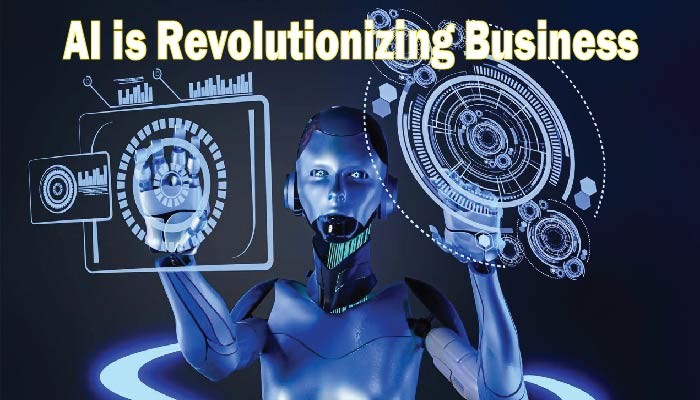
AI-Powered Insights: Transforming Decision-Making Processes
AI enables businesses to make data-driven decisions with unprecedented speed and accuracy. This section examines how AI-powered analytics and predictive modeling provide valuable insights into consumer behavior, market trends, and competitive landscapes. Through real-time data analysis, businesses can anticipate market shifts, identify opportunities, and mitigate risks, ultimately driving strategic decision-making processes.
Enhanced Customer Experiences: Personalization and Engagement
Customer expectations continue to evolve, demanding personalized experiences and seamless interactions across channels. AI empowers businesses to meet these demands by analyzing vast amounts of customer data to deliver tailored recommendations, personalized marketing campaigns, and proactive customer service. We’ll explore how AI-driven chatbots, recommendation engines, and sentiment analysis tools are revolutionizing customer engagement and loyalty.
Streamlined Operations: Automation and Efficiency
AI-driven automation streamlines repetitive tasks, enhances operational efficiency, and reduces human error. In this section, we’ll discuss how businesses leverage AI technologies such as robotic process automation (RPA), intelligent workflows, and autonomous systems to automate manual processes across functions like finance, supply chain management, and HR. By automating routine tasks, businesses can allocate resources more strategically and focus on value-added activities.
Predictive Maintenance: Optimizing Asset Performance
For industries reliant on machinery and equipment, unplanned downtime can result in significant losses. AI-powered predictive maintenance algorithms analyze equipment data in real-time to forecast potential failures and schedule proactive maintenance interventions. We’ll explore how predictive maintenance strategies enable businesses to optimize asset performance, minimize downtime, and reduce maintenance costs, ultimately improving overall operational efficiency.
Supply Chain Optimization: Agility and Resilience
The complexity of modern supply chains demands agility, visibility, and resilience. AI technologies such as machine learning, optimization algorithms, and blockchain enable businesses to optimize supply chain operations, enhance forecasting accuracy, and mitigate supply chain disruptions. This section delves into how AI-driven supply chain solutions improve inventory management, demand forecasting, and logistics optimization, enabling businesses to respond rapidly to changing market dynamics.
Fraud Detection and Risk Management: Protecting Business Integrity
In an era of increasing cyber threats and financial fraud, AI-powered solutions play a crucial role in safeguarding businesses against risks and vulnerabilities. Advanced machine learning algorithms detect anomalous patterns, identify potential fraud instances, and strengthen security measures across digital channels. We’ll examine how AI-driven fraud detection systems enhance risk management practices, safeguarding business integrity and protecting against financial losses.
Human Resource Management: Talent Acquisition and Development
AI technologies are revolutionizing traditional human resource management practices, from talent acquisition to employee development and retention. Automated recruitment platforms leverage AI algorithms to match candidates with job opportunities based on skillsets, experience, and cultural fit. Additionally, AI-powered learning management systems (LMS) offer personalized training programs tailored to individual employee needs, enhancing skill development and fostering a culture of continuous learning.
Ethical Considerations: Addressing Bias and Fairness
While AI offers immense potential for business transformation, it also raises ethical concerns related to bias, fairness, and transparency. This section explores the ethical implications of AI-driven decision-making processes and the importance of mitigating algorithmic biases. We’ll discuss strategies for ensuring fairness, accountability, and transparency in AI systems, ultimately fostering trust and responsible AI adoption within organizations.
Future Trends and Opportunities: Embracing the AI Revolution
As AI continues to evolve, businesses must adapt to emerging trends and seize opportunities for innovation and growth. This section highlights future trends such as explainable AI, edge computing, and AI-powered creativity, offering insights into how businesses can stay ahead of the curve. By embracing the AI revolution and leveraging emerging technologies, businesses can drive sustainable competitive advantage and shape the future of their industries.
Conclusion: Embracing the AI-Powered Future of Business
In conclusion, AI is not merely a technological advancement but a catalyst for transformative change across business landscapes. By harnessing the power of AI-driven insights, automation, and innovation, businesses can unlock new opportunities, drive operational efficiencies, and deliver unparalleled value to customers. As businesses navigate the complexities of the AI revolution, embracing ethical considerations and staying attuned to emerging trends will be critical for success in an increasingly AI-powered future.
